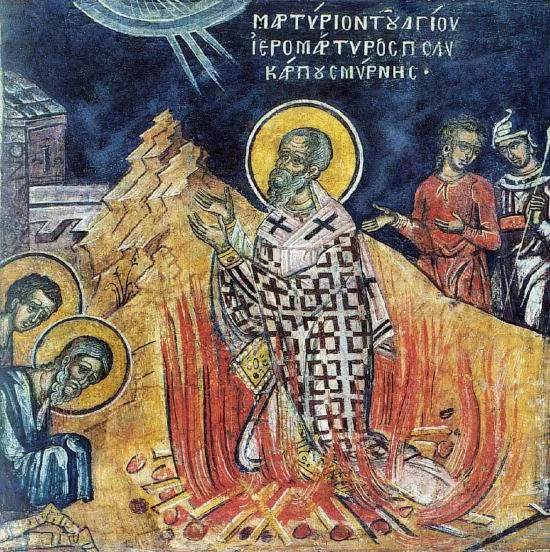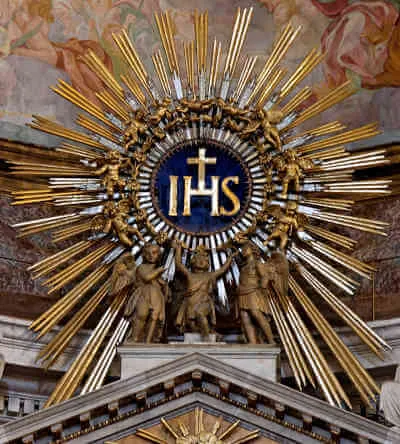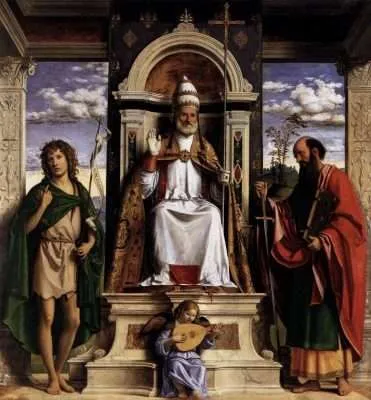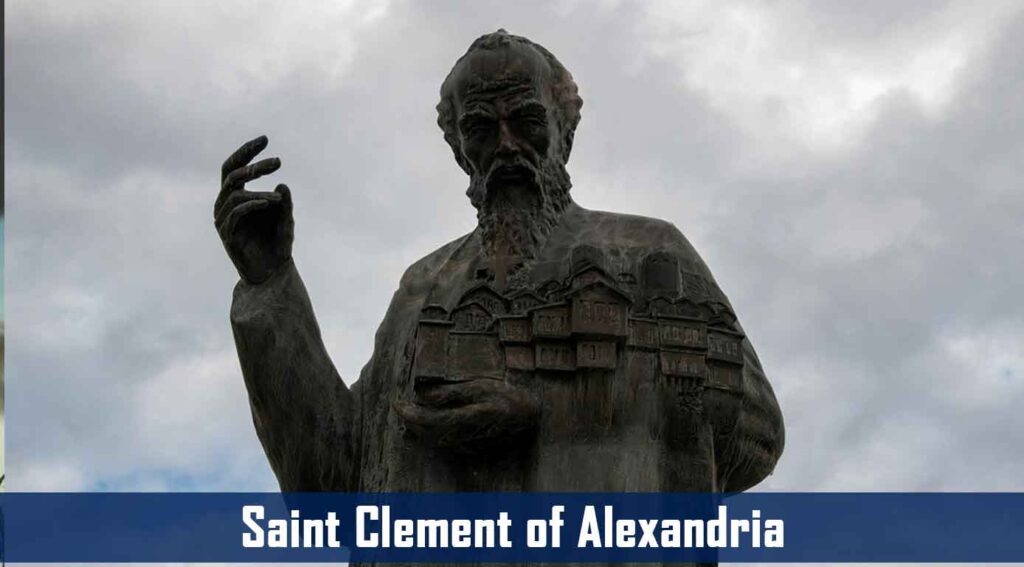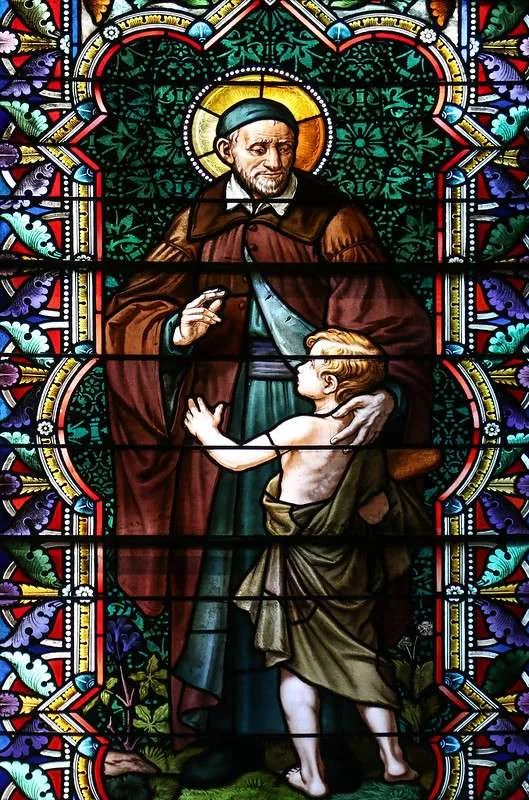Invoked against earaches and dysentery; Pre-Congregation canonization
Imagine learning about Christ from someone who knew Jesus personally. What a blessing that would be! This is the blessing today’s saint enjoyed. Saint Polycarp came to know Jesus through the preaching of Saint John the Apostle, the beloved disciple of our Lord.
Saint John’s preaching touched many lives, including that of a young man named Polycarp. It is believed that Saint John ordained Polycarp a bishop and sent him to the town of Smyrna, Asia Minor (modern-day Turkey). Polycarp might have been only a teenager when he was ordained, and he shepherded the Church in Smyrna for more than sixty or seventy years. Saint Irenaeus later wrote that Polycarp “would speak of his familiar intercourse with John, and with the rest of those who had seen the Lord; and he would call their words to remembrance.”
Irenaeus was Polycarp’s disciple, being about sixty-five years younger. That the faith passed on from Jesus to John, from John to Polycarp, from Polycarp to Irenaus, and from Irenaeus to his disciples down through the ages well illustrates that the faith we have today is “apostolic,” meaning passed down to us from the Apostles. Polycarp is commonly referred to as one of the three Apostolic Fathers of the Church because he learned from one of the Twelve and because some of his writings still exist. The other two are Saint Ignatius of Antioch and Saint Clement of Rome (the third pope).
As a bishop, Polycarp was a fierce and courageous defender of the faith, especially against early heresies. He also worked closely with other bishops in the early Church, including the pope. One of those bishops was the Apostolic Father Saint Ignatius of Antioch. In 107 A.D. Ignatius was arrested and brought in chains through the city of Smyrna. Polycarp met him on the way and kissed his chains. Ignatius later wrote to Polycarp, asking him to care for his people. Polycarp did so in part by writing a letter to the Church in Philippi in which he beautifully exhorted the people in their faith. This is the only letter from Polycarp that has survived.
Once when traveling through Rome, Polycarp sought out Pope Anicetus to gain his counsel about the many concerns of the Church. On most things they agreed, but they disagreed on the appropriate day of the year to celebrate Easter. The pope preferred it always be on the Sunday after Passover, but Polycarp preferred it to be more closely tied to Passover, no matter on which day of the week it fell. Since they could not agree, the pope permitted Polycarp and his Eastern Churches to continue their practice, while the Roman Church continued its practice. They affectionately concluded their time together by celebrating the Holy Mass.
Though Polycarp collaborated with the pope and other bishops, he was quite harsh with heretics. For example, a heretic named Marcion taught that there were two gods, the Old Testament God and the New Testament God. One day Polycarp encountered Marcion in Rome. Marcion was surprised that Polycarp knew about his teaching and asked, “Do you know me, Polycarp?” Polycarp replied, “Yes, I know you to be the firstborn of the devil!”
Polycarp is perhaps best known for his martyrdom, which is the second earliest written detailed account of a martyr’s death, the first being the account of Saint Stephen’s stoning as recounted in the Acts of the Apostles. According to that account, when the Roman authorities sought to arrest Polycarp, he at first hid for a week at the encouragement of some of his followers. Eventually, he was found but before he was arrested, he asked for an hour to pray and prepare himself. He was then brought before the proconsul in an arena filled with spectators.
The proconsul called him an atheist because he rejected the gods of the Roman Empire. He then promised Polycarp would live if he rejected Christianity. The Romans found it more effective to convince Christians to blaspheme Christ than to martyr them. The proconsul threatened him with wild beasts, but Polycarp responded, “Eighty and six years have I served him, and in nothing has he wronged me. How, then, can I blaspheme my King, who saved me?” The proconsul then threatened to burn him to death, but Polycarp said, “You threaten me with fire that burns but for a season, and is soon quenched. For you are ignorant of the fire of the judgment to come, and of the eternal punishment reserved for the wicked.”
The proconsul then condemned him to death and people gathered wood for the fire, but when they approached him to fasten him with nails to the wood, Polycarp said, “Leave me as I am, for He Who gives me strength to endure the fire will also allow me, without the security of your nails, to remain on the pyre without moving.” The fire was then lit, and Polycarp remained there by his own will.
But to the surprise of all, his flesh did not burn. Instead, there came forth a sweet aroma as the fire surrounded him and protected him. Angered at this spectacular event, one of the soldiers thrust a spear into him, killing him. When he did this, a dove emerged from his chest, and so much blood gushed forth that the flames were extinguished. On seeing Polycarp’s dead body, some of the angry mob feared that his followers would take his sacred body and worship it, so they ignited the fire once again and burned his dead body.
Martyrdom like this takes incredible courage to endure. It requires that one prefer a wholehearted profession of faith in Christ over one’s earthly life. Though you might not be called to such a physical martyrdom, you are called to have Polycarp’s faith and courage. That courage will make you a martyr in spirit, and that faith will lift you to the heights of Heaven. Ponder your own depth of faith and courage today, and allow Polycarp’s witness to strengthen your resolve to become more like him.
Source: https://mycatholic.life/saints/saints-of-the-liturgical-year/february-23-saint-polycarp-bishop-and-martyr/

